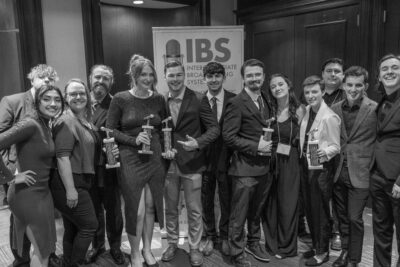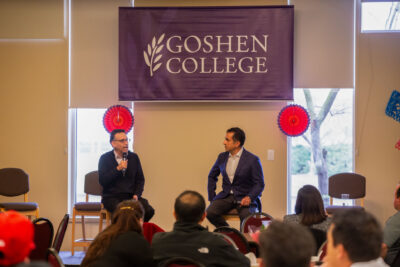After waiting six years and traveling roughly 6,000 miles, Idris O. Busari, a junior broadcasting and public relations major from Nigeria, became a United States citizen on Nov. 4.
Busari's journey toward American citizenship started about six years ago when he met his future wife, Erica, online. At the time Busari was in Nigeria, but as they got to know each other better she traveled from the U.S. to meet him in person.
Over the next few years, Erica visited Nigeria four or five more times. After her last visit she filed the correct paperwork to get Busari to the U.S. Despite a small mishap in Germany with his visa, he was eventually able to reach his destination. This was just the beginning of a long, complicated process for Busari.
“Becoming a U.S. citizen, man, it’s been a rough road, that’s how I’ll put it,” Busari said.
When he first arrived in the U.S., Busari found himself unable to work for almost a year while he waited for the government to process the required paperwork to give him work authorization. After some of his paperwork went through, Busari was given conditional permanent residency that lasted for two years before he was finally granted regular permanent residency, which lasts for ten years.
During all of this, Busari had to regularly go for interviews with the immigration bureau and do biometrics testing that was sent to the Federal Bureau of Investigations.
“Biometrics is when they take your fingerprints and take your photo to make sure you haven’t committed a crime,” Busari explained. “We didn’t use a lawyer to file [our paperwork],” he said. “We did it all ourselves, just making sure we read things real well.”
After being a permanent resident for some time Busari was allowed to take the citizenship test needed to become a full U.S. citizen. Becoming a citizen gives Busari more rights than what he had as a permanent resident.
“A permanent resident can work, have some of the rights that a citizen has, but you cannot vote,” Busari said. “You cannot vote in the primaries, and you can’t vote in the federal [elections]."
Citizens also have the ability to run for public offices, a right that permanent residents don’t enjoy. “And still there are things that a naturalized citizen can’t do, such as run for president,” Busari said.
While Busari now has the right to vote, he was unable to vote in the recent local elections due to a delay with filing paperwork.
“I’m still in the process of changing stuff over,” explained Busari. “I just did stuff with Social Security the same day when I became a U.S. citizen, and they had to change me from permanent resident in the system, to a citizen.”
He was also delayed because, after registering to vote, a person needs to wait for 28 days before becoming an active voter. “I was going to do it on the same day, but somebody told me that I’d have to wait,” Busari said.
The whole process took Busari about five years, and he is glad it’s over. “I feel empowered," Busari said. "Life has been a struggle altogether, but this has been one thing that I got out of the way. It’s one less thing that I have to worry about.”
Becoming a citizen has also helped Busari feel more welcomed and accepted.
“There is still some form of prejudice against people who look different or are different," Busari said, "but to legitimize my being here is just one step further with me becoming one with the people. [I] share this value, I share this language, I share this culture. My kids are born here.”

